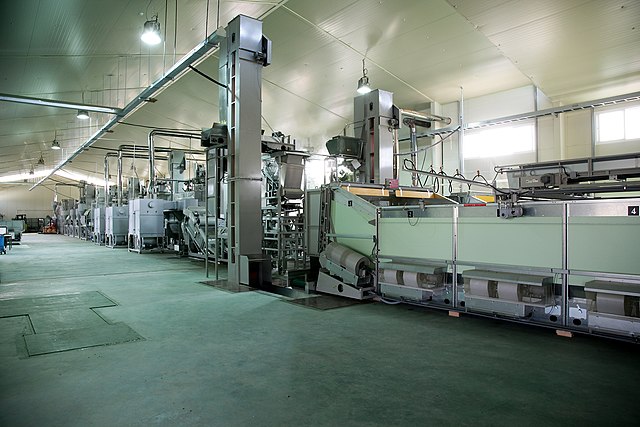As the world population grows and food demand increases, food processing technology is turning to Artificial Intelligence (AI) to predict production and improve sustainably. AI is also helping food processing machines in controlling the drying process of packaged food. Besides, AI integration in cleaning, packing, sorting and grading are all gaining traction. The food processing industry is therefore increasingly acquiring machines with AI features from tech-savvy providers. One such provider is SmartMAK, from Istanbul, Türkiye, which is in the process of integrating its production and packing lines with AI.
For a start, Noor Bakri, Regional Sales Director at SmartMAK tells Selina Wamucii that integrating AI into food processing lines is demanding but achievable:
“We are slowly trying to develop AI solutions into our machines. It is a difficult process, but we are committed to introducing this technology soon.”
Some of the company’s processing and filling lines getting an AI makeover include those for dates-derived products. As such, Noor identifies two production lines that are slowly gaining AI integration.
“It is a work in progress, but we are mainly pushing to add AI tech to our Date Paste and Date Syrup Production Lines.”
On top of the production lines above, there are also packing lines, whichcould get an AI face, too:
“(This applies to) as well as our paste packing line, which is very important to us.” Mr. Noor adds.
The SmartMAK Product Line
The SmartMAK homepage arrays a range of production, filling/packing and production accessory lines for fruits, vegetables and tubers. These include processing, washing, drying, packing, and sorting lines for dates products such as molasses, paste, syrup, juice and jam. Fruits and vegetable processing machines include those for tomato sauce filling, fruit processing/sorting and jam processing/packing. There are also potato processing lines for natural chips and frozen French fries.
Global AI Food Processing Statistics
Mordor Inteligence predicts that AI use in the food and beverage industry, including processing, will reach a market value of $9.68 billion. AI application in the food processing niche could also extend to energy sustainability. According to research, using simple AI sensor models rather than human monitoring in food manufacturing can reduce electrical use by 7%.
What is the proportion of automation in the global food processing industry?
According to the Institute of Food Technologists (ITF), by 2026, the world’s industrial automation sector will be worth $297 billion. Notably, food and beverage applications such as processor machines will represent 11% of the above total value by 2026. AI-based hands-free systems, sensors and cloud integration will have a helpful impact on physical work in the food industry.
Has AI improved profits in the food processing industry?
AI integration is paying off, with one success being the U.S.’ food processing sector which recorded 32% gross profit growth early 2024. According to Food Navigator USA, the food and country’s beverage market median gross profit also grew by 25% during early 2024. Some of the success owed to the use of AI to predict and manage costs in the processing utilities.
